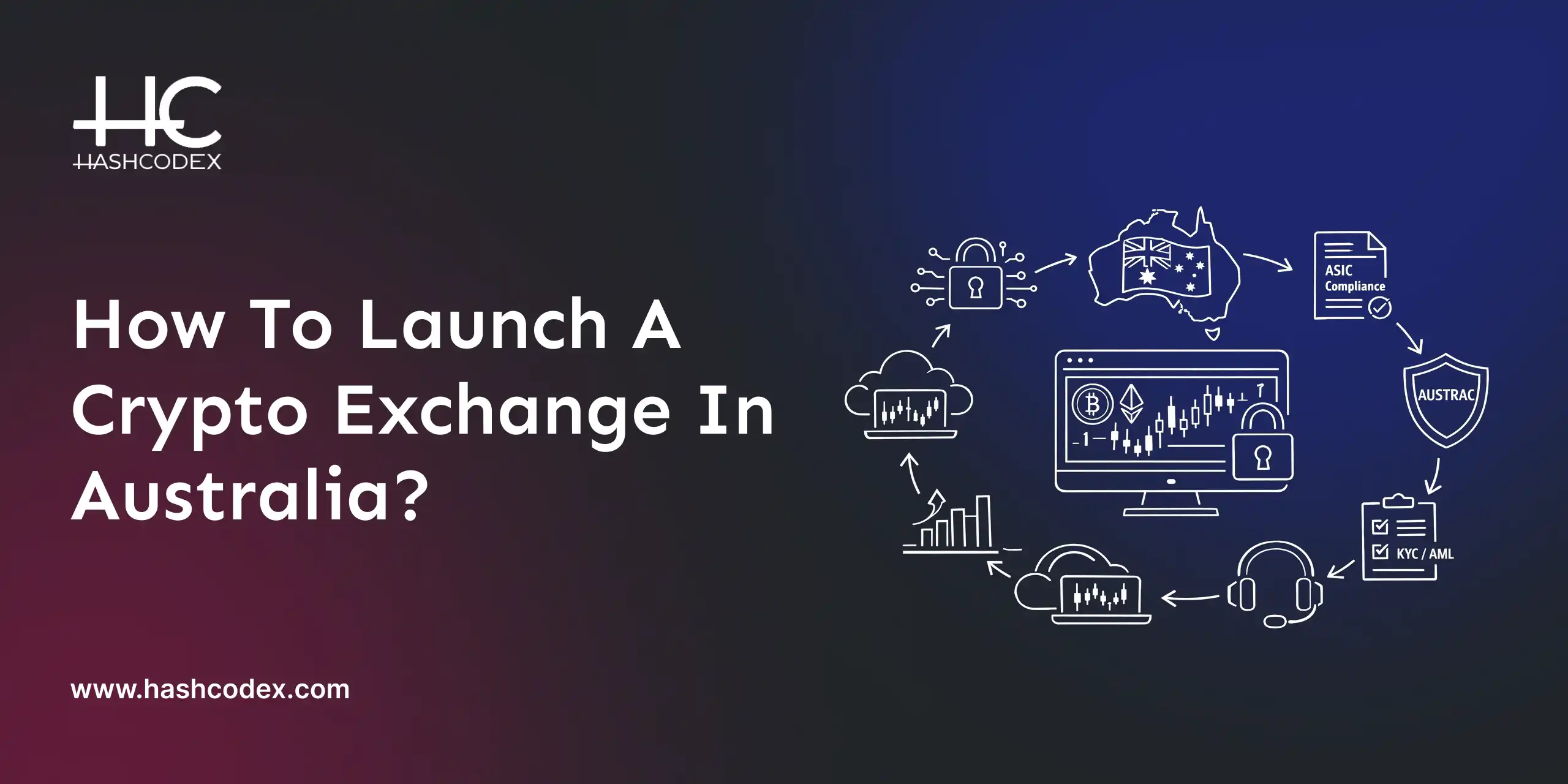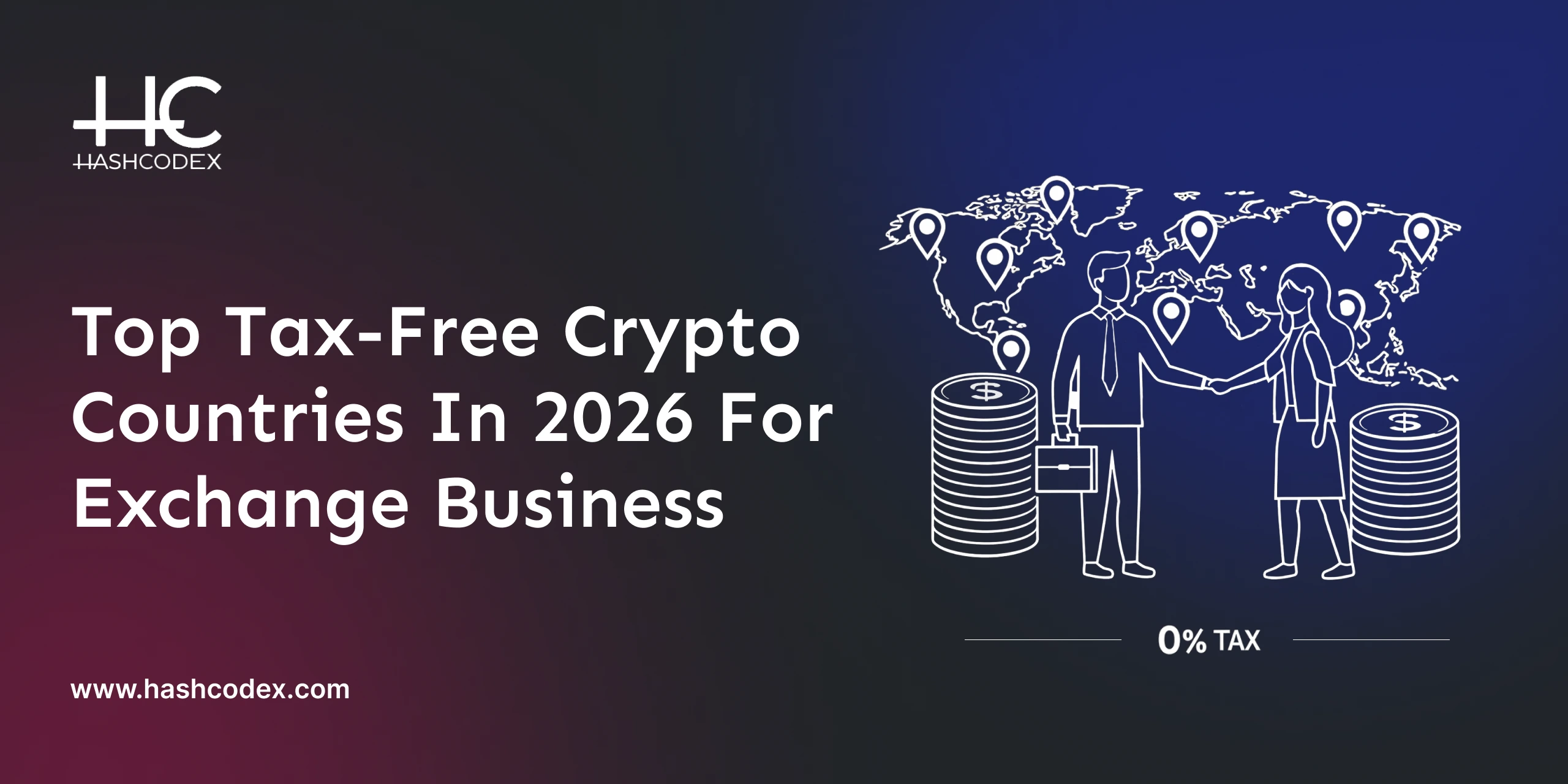What if you could trade digital assets with no middlemen, no limits, and full control over your funds?
Sounds like a dream? It’s already a reality.
The rise of decentralized exchanges (DEXs) is making trading more secure, private, and transparent. In 2023 alone, DEX trading volumes crossed $1 trillion, showing a clear shift toward decentralized solutions. According to DefiLlama, as of March 2025, the total 24-hour DEX trading volume stands at approximately $7.474 billion, with a total 7-day volume of $50.815 billion, marking a 2.67% weekly increase.
In my latest blog, I covered smart contracts in DEX development. Now, let’s explore what’s fueling the growth of DEXs and what the future holds.
Understanding The Decentralized Exchanges(DEXs)
A Decentralized Exchange (DEX) is a sort of cryptocurrency exchange that allows users to trade digital assets directly with one another, without the need for a central authority or intermediary. DEXs use blockchain technology and smart contracts to automate and protect transactions, rather than a business controlling them.
Similar to traditional exchanges, which store funds in a central wallet, DEXs provide users complete control over their assets, decreasing the possibility of hacking or restrictions. They also provide more privacy because most DEXs do not demand personal information for trading.
DEXs are becoming an important aspect of the financial ecosystem as blockchain usage grows, providing a secure, transparent, and open platform for trading cryptocurrencies globally.
The Role of DEXs in DeFi
Decentralized Exchanges (DEXs) are the foundation of Decentralized Finance (DeFi), offering a secure and transparent means to trade digital assets without the use of intermediaries. They power numerous DeFi activities, making financial services more transparent and efficient.
Here's how DEXs benefit the DeFi ecosystem:
Liquidity Provision - Users can contribute assets to liquidity pools, promoting smooth trading while earning benefits.
Cross-Chain Trading - Advanced DEXs allow trading across multiple blockchains, resulting in seamless asset movement.
Token Swapping - Instant and direct asset exchanges without the need for a centralised order book.
Yield Farming - It allows users to make passive income by staking or lending their assets in DeFi protocols.
Staking - By holding tokens on DEX systems, users can earn incentives while also supporting network security.
With these features, DEXs are influencing the direction of decentralized finance by providing a more convenient and effective means of trading and investing in virtual currencies. As DeFi grows, DEXs will soon be more essential in developing a decentralized and borderless financial system.
The Rise of Decentralized Cryptocurrency Exchanges: What Entrepreneurs Need to Know
Decentralized exchanges are expanding rapidly, fueled by technological improvements and rising user demand for secure, transparent, and efficient trading solutions. Here are the main elements driving their expansion:
- Smart Contracts Increase Automation
The use of smart contracts has moved faster DEX trading by automating transactions, eliminating the need for intermediaries, and ensuring trustless, efficient operations.
- The Growth of DeFi Ecosystems
DEXs are at the core of decentralized finance (DeFi), allowing for seamless lending, borrowing, staking, and yield farming, which attracts new users and liquidity to the ecosystem.
- Empowering Users with Community Governance
Compared to centralized platforms, many DEXs use community-driven governance, which allows token holders to influence choices and shape the future of the exchange while reaping benefits.
- Increased Security and Privacy
DEXs provide increased security by eliminating central points of failure, which reduces the chance of hacking. Furthermore, they improve privacy by not forcing users to reveal personal information.
- Cross-Chain and Layer 2 Innovation
Cross-chain interoperability and Layer 2 scaling solutions are improving transaction speeds, cutting fees, and broadening the reach of DEXs across many blockchains.
- Expanding Accessibility and Financial Inclusion
DEXs are tearing down barriers to financial access, letting anyone with an internet connection to freely trade, thereby fostering financial inclusion globally.
With these significant improvements, DEXs are influencing the future of digital asset trading by providing a decentralized, safe, and user-centric alternative to established exchanges.
Key Advantages of Decentralized Exchanges (DEXs)
Decentralized exchanges provide a more secure, transparent, and efficient way to trade digital assets. These are the main advantages:
Complete Control Over Assets
DEXs are non-custodial, which means that users retain full ownership of their cash, removing the possibility of third-party mismanagement. This assures that traders always have complete control over their assets, as opposed to relying on a centralized institution.
Improved security
DEXs are a safer option for traders because they eliminate the need for a central authority, which lowers the danger of fraud, hacking, and money mismanagement. Because transactions are protected by blockchain technology and smart contracts, users are less subject to security breaches.
Censorship Resistance
Because DEXs run on blockchain networks, they cannot be regulated or shut down by governments or centralized organizations. This makes them a successful means for financial freedom, particularly in areas with stringent banking restrictions.
Lower Transaction Costs
Trading on DEXs is often less expensive than on centralized exchanges because there are no intermediaries or excessive platform fees. Users can benefit from lower fees, making frequent trading and smaller transactions more economical.
Open and Permissionless Access
Anyone with an internet connection can use DEXs without the need for clearance, verification, or KYC, making them available to a global audience. This inclusion enables people from unbanked or underbanked areas to engage in global financial markets.
Transparent and Secure Transactions
All DEX transactions are recorded on public blockchains, which ensures complete transparency and reduces the possibility of manipulation. Because users engage directly via smart contracts, the process is trustless, eliminating the need to rely on third parties.
DEXs are transforming the financial world by offering a decentralized, secure, and user-friendly way to trade digital assets.
Top Decentralized Exchanges (DEXs) in 2025
As decentralized trading expands, numerous DEX systems have established themselves as industry leaders, each with unique features and innovations:
- Uniswap - A pioneer in Automated Market Maker (AMM) technology, which has set the standard for decentralized trading on Ethereum.
- SushiSwap - A community-driven DEX with multi-chain functionality that goes beyond Ethereum to other blockchain networks.
- PancakeSwap - The most well-liked DEX on the Binance Smart Chain (BSC), renowned for its quick transactions and affordable costs.
- Curve Finance - Expertise in stablecoin trading, providing low slippage and efficient liquidity pools.
- dYdX - A decentralized platform focusing on perpetual futures trading that offers broad trading tools to experts.
- 1inch - A DEX aggregator that collects the best trade rates from several decentralized exchanges.
To address the growing demand for decentralized finance, these platforms continue to evolve by incorporating new features, upgrading governance structures, and expanding scalability.
The Future of DEXs and DeFi
The future of DEXs and DeFi is becoming more accessible, efficient, and widely adopted. The focus is on making platforms simpler, with better designs and smooth wallet connections.
Financial institutions are also showing interest. As DeFi becomes easier to navigate, banks and investment businesses are considering it for trading and asset management, which could bring more funds and trust into the industry.
AI and automation will improve security and risk management, making transactions safer. Additionally, real-world assets (RWAs) like real estate and stocks could soon be traded on blockchain platforms, creating new investment opportunities.
With improved blockchain technology, transactions will be faster and more effective, leading to a more open and inclusive financial system.
Conclusion
Decentralized exchanges (DEXs) are making digital asset trading more reliable and accessible by eliminating the need for middlemen. They give users full control over their funds while providing transparency. As decentralized finance (DeFi) gains popularity, DEXs will continue to evolve and change the way trading works.
With continuous growth in decentralized exchange development, businesses and developers have new opportunities to create innovative trading platforms. Those investing in these solutions today will help expand decentralized trading and make it a bigger part of the global financial system.











